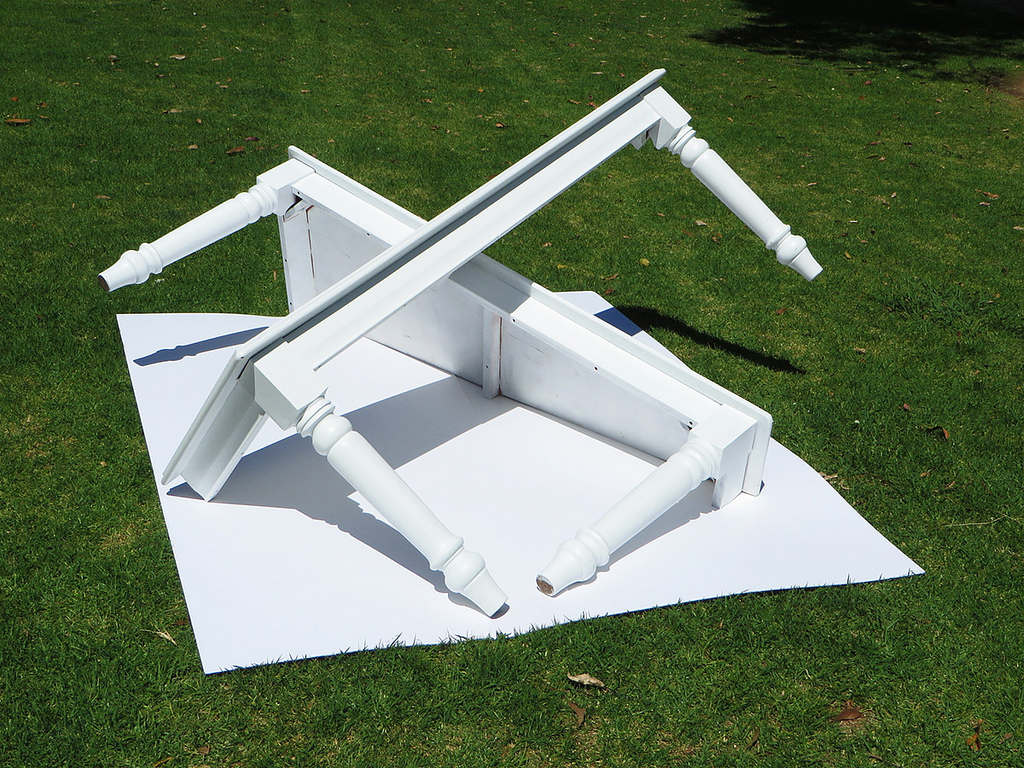Be Careful with Short Legged Tables
Have you ever felt like your business and/or your life were out of balance? It’s a little like a three-legged table with a short leg…kind of wobbly.
I know I have felt this way and sometimes still do. You have probably heard the saying ‘feast or famine’. This seems to be especially true in the construction industry. It refers to the common problem of either having way too much to do, or worrying about how you are going to pay the bills if you don’t get some work soon.
Sometimes this is caused by situations beyond our control. The economy, the weather, or some other external force. More often than not the reason is an “out of balance business”.
Like a table with a short leg.
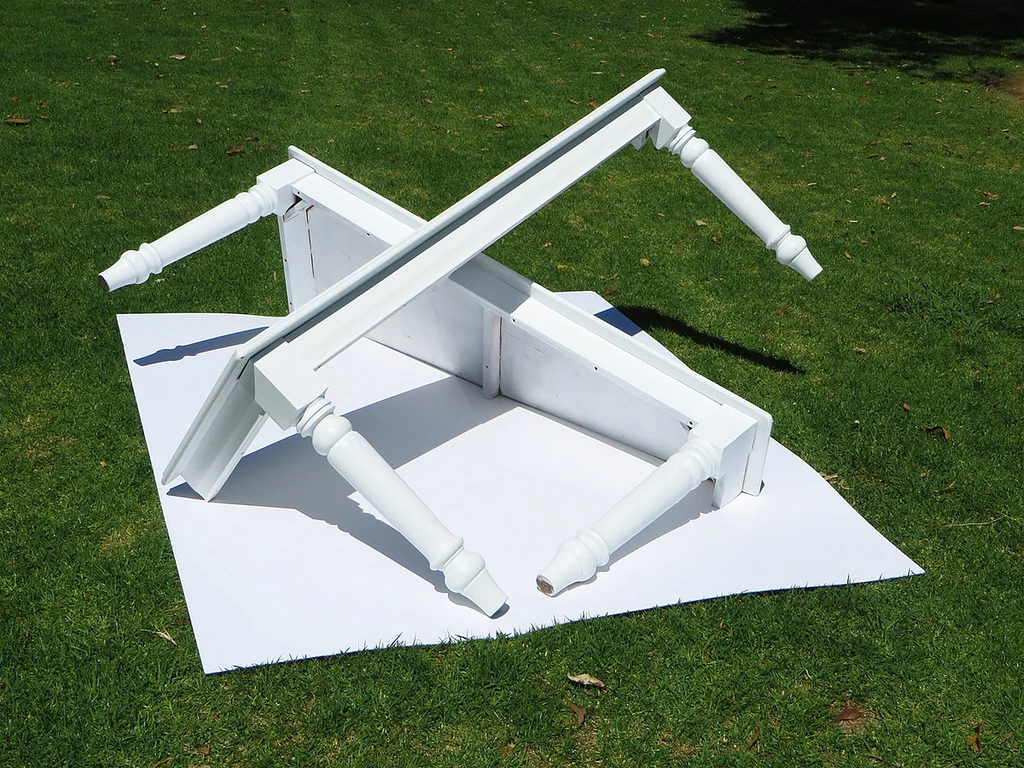
I wrote about this originally in April of 2016, and it’s a topic that is still relevant. I say this because I’m currently going through one of those times of famine. This is not due to a lack of leads for construction projects. It’s because I’m spending time getting the coaching and consulting for construction companies started.
One thing that I’ve learned over my 40+ years in construction is that business is a lot like a three-legged table.
When all the legs are the same length, it helps provide a level, sturdy platform for the company to sit on. When any one or two of them is too short, the table begins to lean. If it tips too far the company will slide off.
It’s never good when a company crashes to the floor.
The three legs of the construction business are:
1 – Sales/Marketing – Searching for and finding customers that you can help by providing your service and/or product through word of mouth, advertising, and awareness. Meeting with potential customers, determining what they want/need and preparing estimates, proposals, and contracts.
2 – Production/Operations – Organizing, scheduling, and maintaining construction projects. Determining who the right people are to perform specific tasks. Knowing the parts that are needed and making sure they fit. Maintaining communication between all parties involved.
3 – Administration/Finance – The preparation of documents needed to communicate, track, and record all aspects of the business. The filling out and filing of income, expense, banking, and tax papers. This leg is one of the easiest for ‘tradespeople’ to neglect. When it gets short, it can really cause the table to lean.
The tabletop is the big picture planning and organizing. It’s what connects the three separate legs. It’s easy to give too much attention to one or two legs and forget the others. This is when the tipping begins.
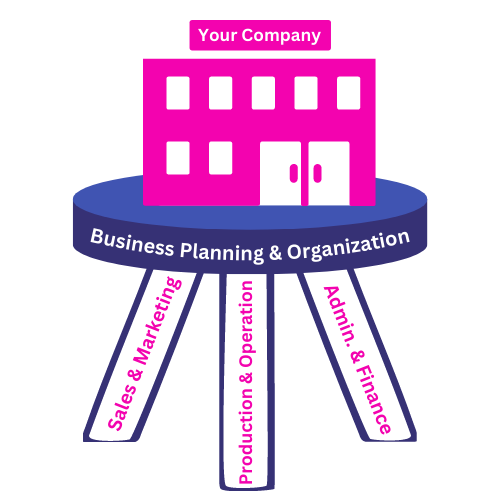
To get so focused on production of projects that we forget to follow up with a new customer shortens the Sales/Marketing leg.
To get so into preparing proposals that we forget to invoice shortens the Administration/Finance leg.
To work so diligently on tracking expenses that we don’t leave enough time for working on projects shortens the Production/Operations leg.
There is no perfect formula to keep the table from ever leaning.
The most important thing is to realize that it can happen and continually strive to keep the table balanced.
Most of us in construction started out by learning our trade while working for someone else. This is how I got started. The problem with this is that while I learned how to build a building, I wasn’t taught how to build a well-balanced company.
After years of struggling and learning things the hard way, I developed Business BUILDing tools that are great for building a construction business.
Just like any tool, if you don’t use them…things don’t get built.
Having the right tools and using them only goes so far. You also need to continually work to keep the table legs the right length so that the company doesn’t come crashing to the ground.
This is why at Solution Building we offer coaching and consulting to help you keep your construction business well supported and level.

Now that I’m done sharing this solution, I’m going to get to work on some proposals so that I can lengthen the Production/Operation leg of my construction business!
















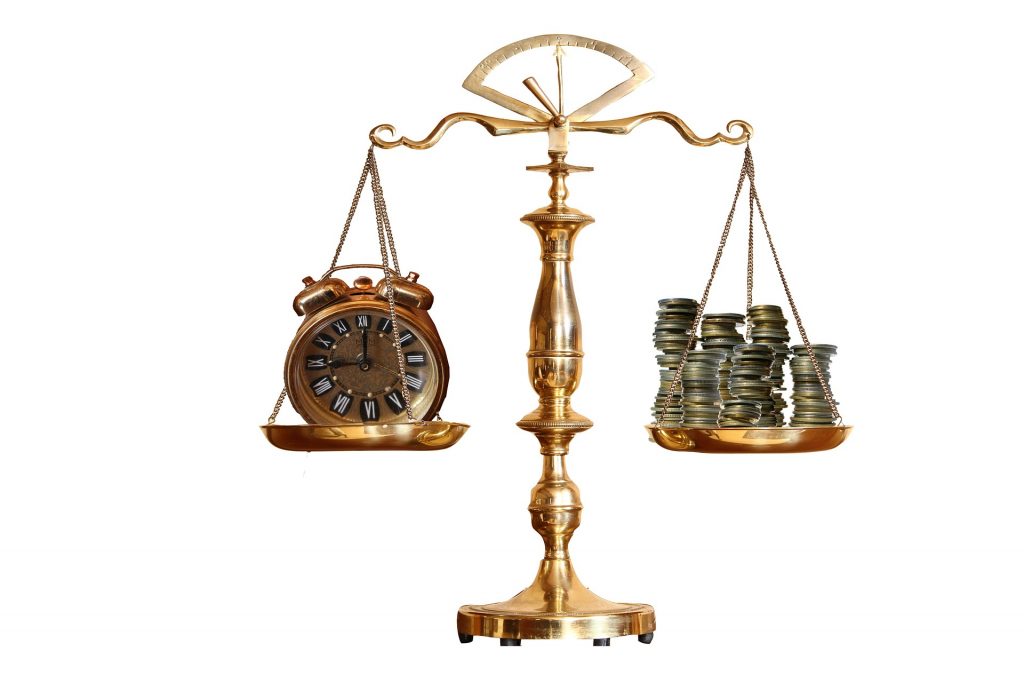
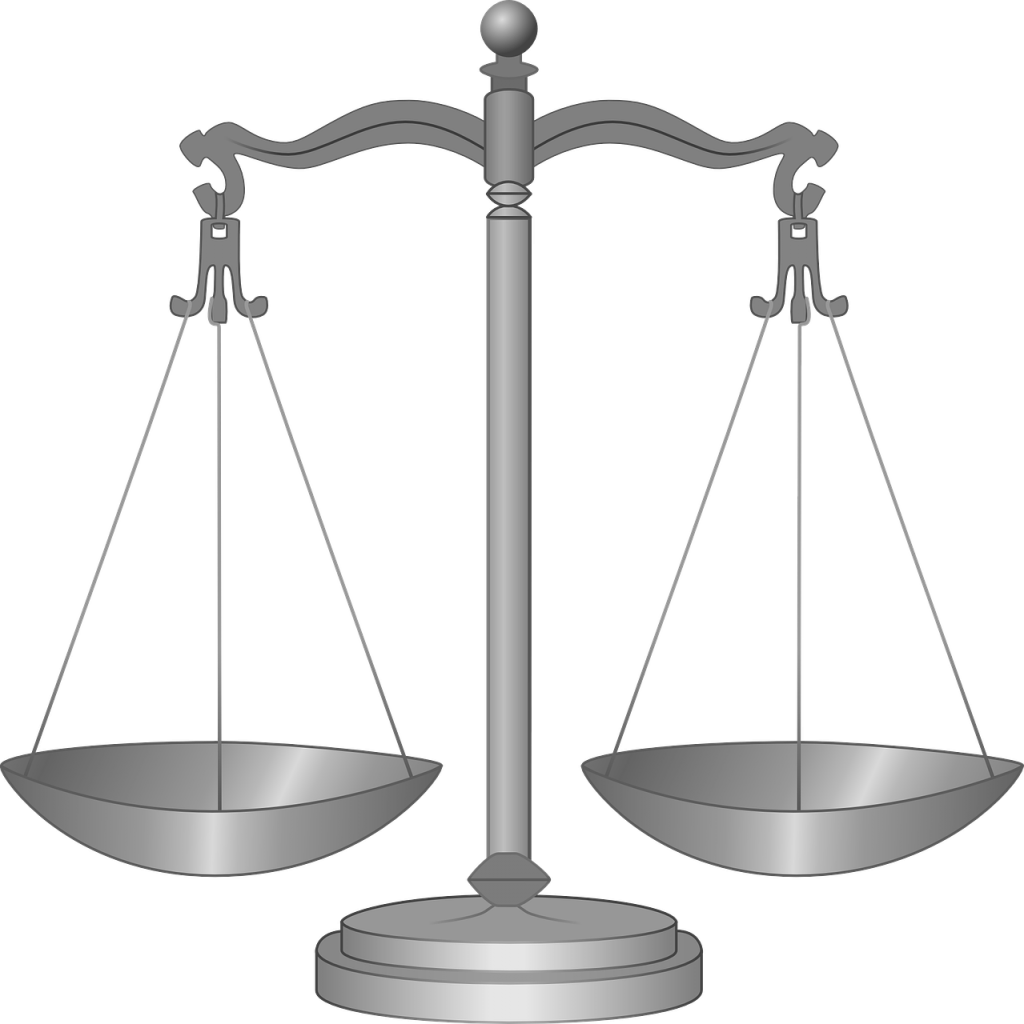
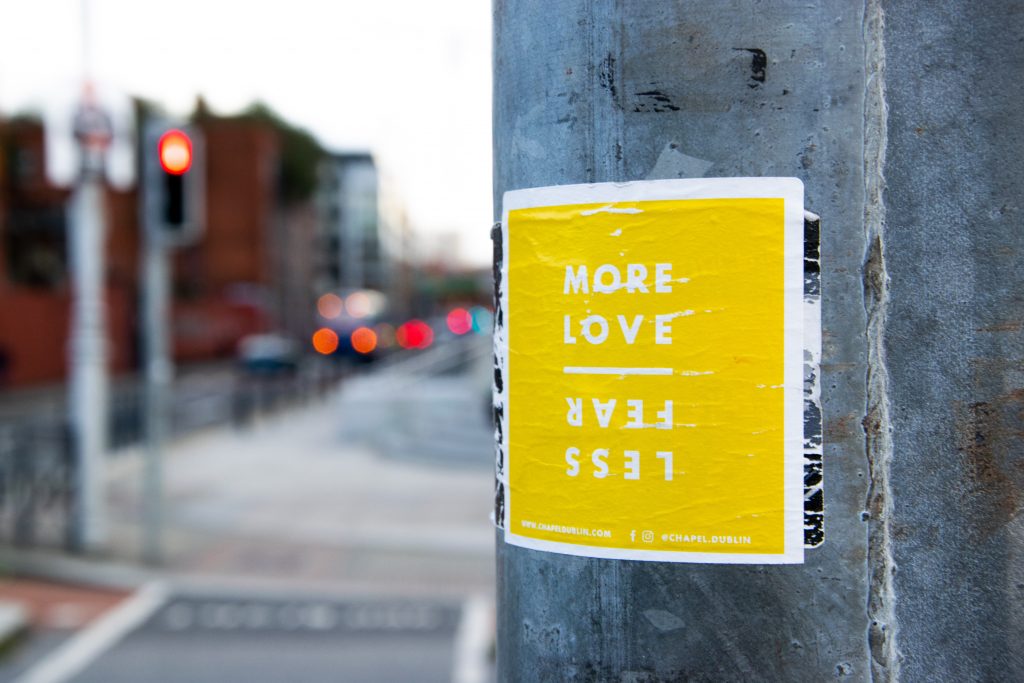 While at a school dance a young woman found herself in an awkward situation. Across the room she spotted a young man whom she was attracted to. While talking about him with her girlfriends, she knew exactly what she was going to say. Once she finally mustered up the courage, she went up to him to introduce herself. It was at this point that she became totally tongue tied and everything she wanted to say refused to cooperate. We’ve all found ourselves in similar situations, but it doesn’t have to be this way.
While at a school dance a young woman found herself in an awkward situation. Across the room she spotted a young man whom she was attracted to. While talking about him with her girlfriends, she knew exactly what she was going to say. Once she finally mustered up the courage, she went up to him to introduce herself. It was at this point that she became totally tongue tied and everything she wanted to say refused to cooperate. We’ve all found ourselves in similar situations, but it doesn’t have to be this way.
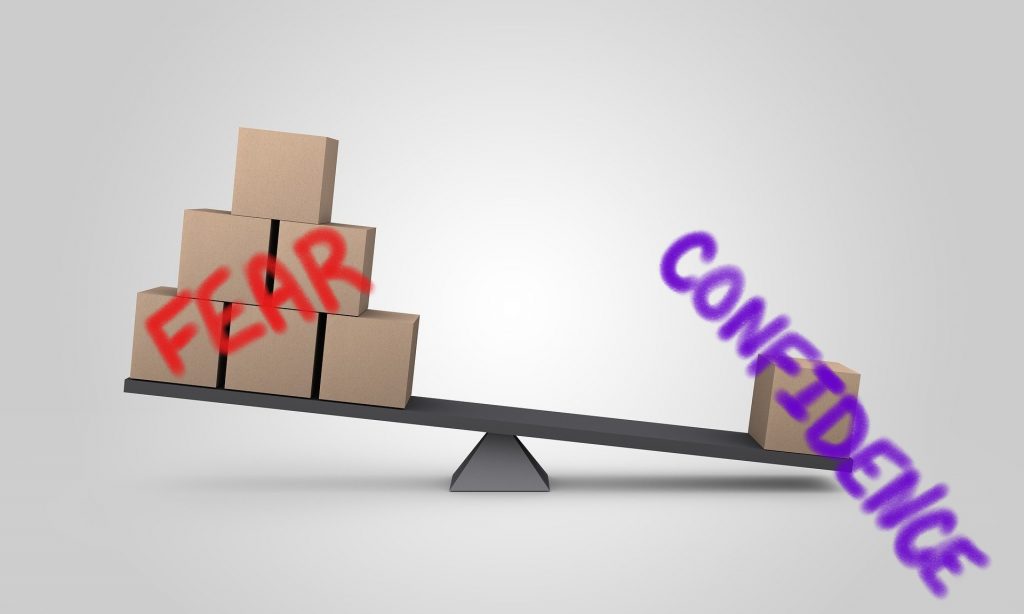 It’s difficult balancing confidence and fear. Self-awareness and understanding are where balance starts. Once we know who we are and what we do, we can move toward balance. Sometimes we need some guidance and inspiration to get us moving though.
It’s difficult balancing confidence and fear. Self-awareness and understanding are where balance starts. Once we know who we are and what we do, we can move toward balance. Sometimes we need some guidance and inspiration to get us moving though.



 I see BALANCE as large platform sitting centered on top of a small point. Without anything on the platform, it sits level. When one thing is placed on top of the platform near the center, things go pretty well, and it stays relatively level. As more things are put on the platform and things begin to be crowded from the center it starts to get heavier at different areas. This causes the platform to lean. If one heavy thing or too many things are moved too far from the center the platform will tip far enough that things falls off. Keeping things setting on the platform is all about weight and location.
I see BALANCE as large platform sitting centered on top of a small point. Without anything on the platform, it sits level. When one thing is placed on top of the platform near the center, things go pretty well, and it stays relatively level. As more things are put on the platform and things begin to be crowded from the center it starts to get heavier at different areas. This causes the platform to lean. If one heavy thing or too many things are moved too far from the center the platform will tip far enough that things falls off. Keeping things setting on the platform is all about weight and location.

 I decided to write about this core value while reading “The Seventh Most Important Thing”, by Shelley Pearsall. In the story Mr. Hampton leaves a hand-written message for Arthur on a piece of cardboard,
I decided to write about this core value while reading “The Seventh Most Important Thing”, by Shelley Pearsall. In the story Mr. Hampton leaves a hand-written message for Arthur on a piece of cardboard,  It has been my experience when building a building that people have a dream of what they envision the finished project to look like. The problem is, they don’t know how to get that dream from their head to a physical structure. This is where vision comes in. The vision is the process of taking the imagined and turning it into reality. This provides a clear and intentional plan for building the dream.
It has been my experience when building a building that people have a dream of what they envision the finished project to look like. The problem is, they don’t know how to get that dream from their head to a physical structure. This is where vision comes in. The vision is the process of taking the imagined and turning it into reality. This provides a clear and intentional plan for building the dream.